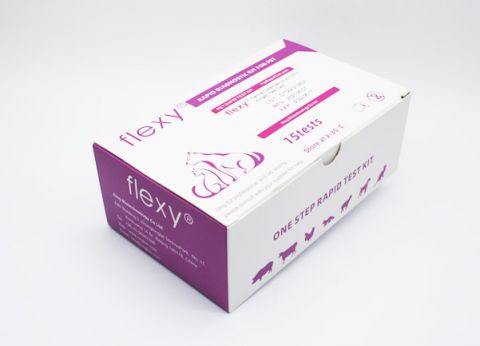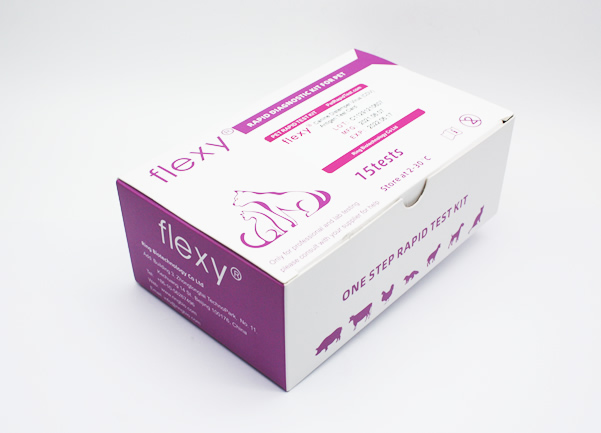
Canine Parainfluenza Virus Real-time PCR Test Kit can be used to detect CPIV nucleic acid in canine mouth, nose and eye swabs, which is rapid and accurate.
Basic information
Canine parainfluenza virus (CPIV) is a highly contagious respiratory virus and is one of the most common pathogens of infectious tracheobronchitis, also known as canine cough. Although the respiratory signs may resemble those of canine influenza, they are unrelated viruses and require different vaccines for protection. This kit uses fluorescence probe PCR (RT-PCR) method to detect the deserved gene of CPIV, which is helpful for diagnosis, monitoring and epidemiological investigation of CPIV.
Key facts of the Canine Parainfluenza Virus Real-time PCR Test Kit
- Ready to use kits for vet clinic
- No extraction required
- Result in 30min.
Canine Parainfluenza Virus Real-time PCR Test Kit Components
| Item # | Item | Qty |
|---|---|---|
| 1 | PCR reaction solution | 120ul |
| 2 | Negative Control | 50ul |
| 3 | Positive Control | 50ul |
| 4 | Exogenous Gene Control | 50ul |
| 5 | Sample buffer | 1ml |
| 6 | Enzyme mix | 10ul |
| 7 | Kit user manual | 1set |
What is parainfluenza?
Parainfluenza virus is a virus with symptoms similar to influenza, but it is a very different disease. This is related to canine distemper. Parainfluenza viruses are part of the highly contagious respiratory system. Dogs who have recently been infected with parainfluenza may also have other problems, such as kennel cough. Sometimes, dogs with parainfluenza are also co-infected with Bordetella, adenovirus, and pneumonia.
What are the symptoms of canine parainfluenza?
Cough is the most common symptom of parainfluenza. The cough can be dry or wet, with phlegm, and may also cough up blood. In addition to coughing, your dog may also have a fever and look and act as if he or she is unwell. He or she may not eat or be interested in their daily activities. You may also see more snot than usual. Some dogs have few or no symptoms. Unfortunately, asymptomatic dogs are problematic because their owners and breeders are less likely to isolate them. Therefore, they may be the main vectors of the disease.”
In wildlife, infection with canine distemper closely resembles rabies. Distemper is often fatal, and dogs that survive usually have permanent, irreparable nervous system damage.
How is canine parainfluenza prevented?
In general, dogs do not need to be hospitalized for this disease except in extreme cases. After a veterinary diagnosis, your dog may need medication to relieve symptoms. Prescription cough medicine can help dogs with severe coughing and breathing problems. If your dog develops a secondary infection, such as pneumonia, he or she may also need antibiotics.
In addition to medication, there are other steps you should take to relieve your dog's symptoms and prevent the spread of the disease to other dogs. Keep your dog away from healthy animals until he or she recovers. Try using a humidifier to reduce chest congestion. Your dog will recover from the infection within a few weeks.
Extended reading
- Canine Parainfluenza Virus, Town Centre Veterinary Hospital
-
What is parainfluenza in dogs? - Kay Animal Hospital




